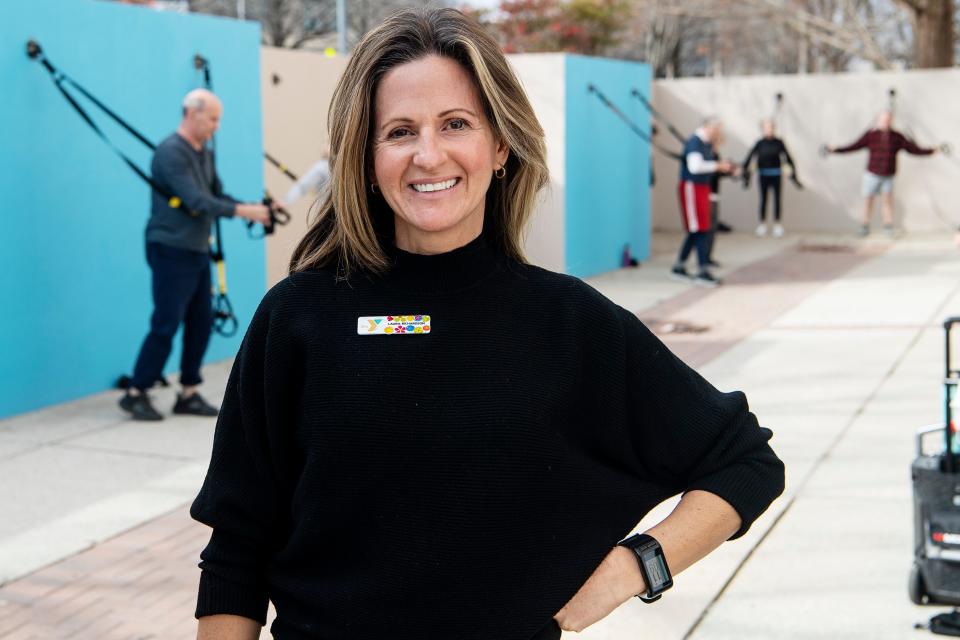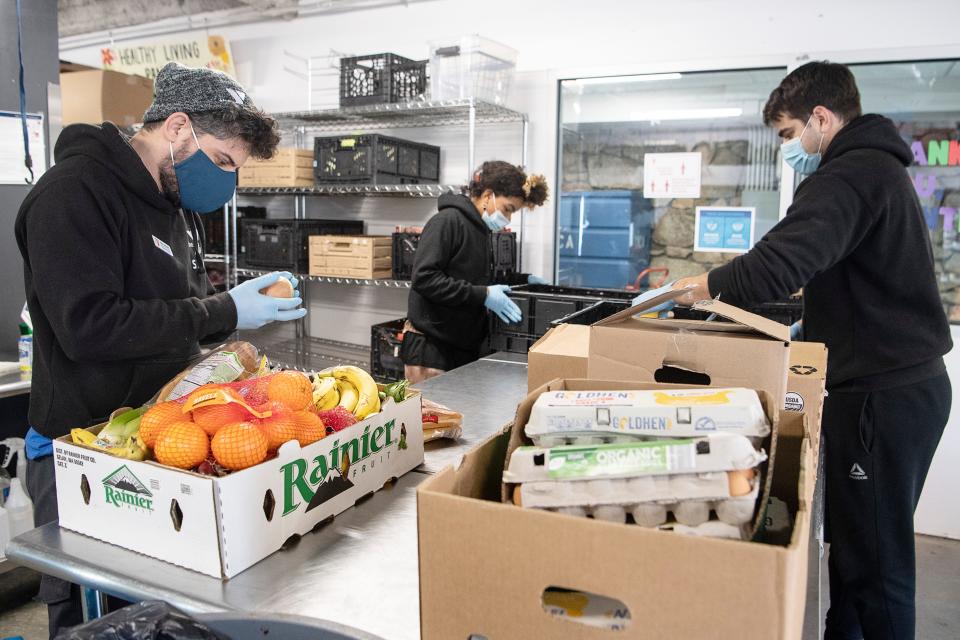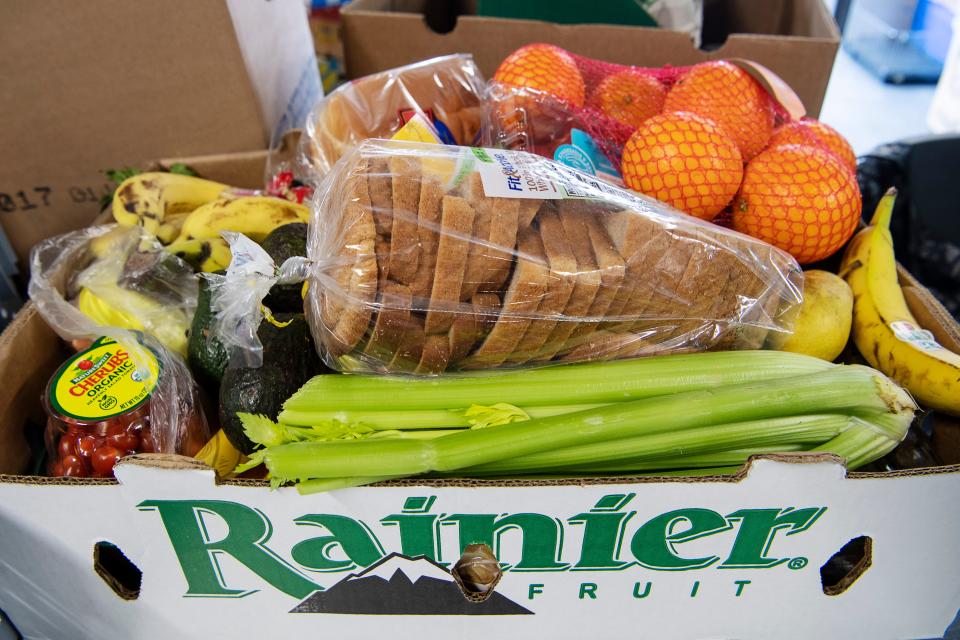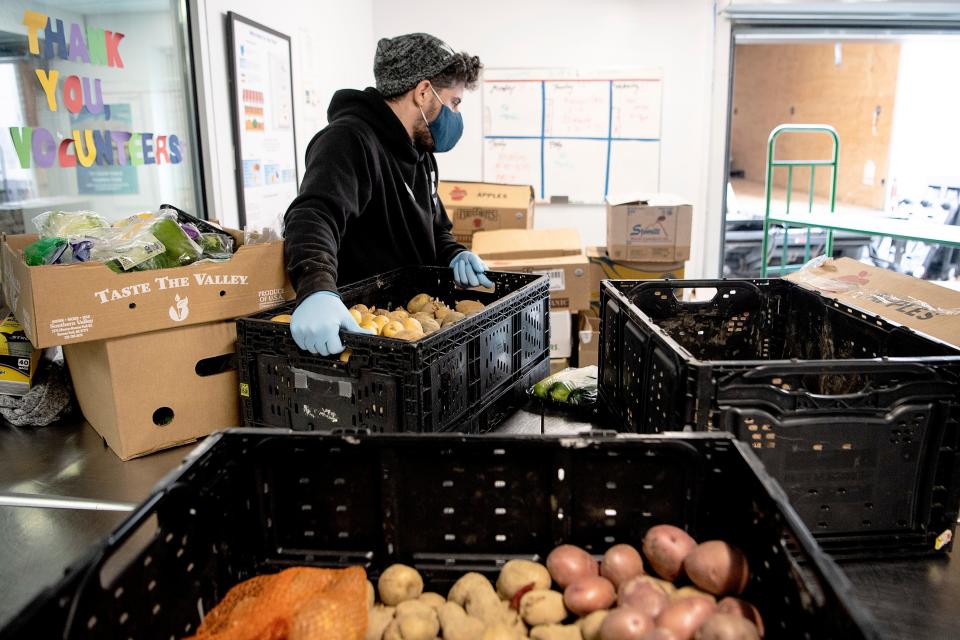Energy-boosting tips to combat the winter, pandemic blues
The resolve to make a change isn’t restricted to a New Year’s resolution. Seize the opportunity to recharge and take charge of your life today.
Low physical energy may be a result of the colder weather season or staying indoors more if working remotely or social distancing amid the COVID-19 pandemic. Two local health and nutrition professionals said they have noticed a change in the way people eat and behave during the pandemic, which affects energy levels, as well.
“People are eating more often and grazing because they’re at home,” said Lauren Furgiuele, a registered dietitian nutritionist and licensed dietitian/nutritionist who is founder of Planting Roots Nutrition. “A lot of people are working from home and they’re also stressed. That emotional eating, stress eating, going to the kitchen just to take a break from work — all of those things are totally increasing a lot more in the past couple of years, and that’s something I find I really need to work on with people.”
Poor nutrition and fitness practices and higher stress levels may be culprits, too, said Laura Richardson, community health coordinator and lifestyle coach as well as a certified health and wellness coach for the YMCA of Western North Carolina.

More: Asheville resident heads to reality television cooking competition, 'Top Chef'
More: Asheville restaurants' plant-based menus rival KFC's Beyond Fried Chicken
“Stress is a huge factor for a lot of people, and the pandemic is not helping it,” Richardson said. “We tend to go toward those comfort things or behaviors like binging too much TV or not pouring the chips into a bowl to eat out of but taking the whole bag to the couch because that feels good.”
A better lifestyle doesn’t have to be a daunting task or call for drastic actions, she said. A few gradual changes can set a person on a long-term path to overall wellness.
“Tiny little microscopic changes you make in your life can have a big impact,” Richardson said.
Diet vs. lifestyle change
Furgiuele offers one-on-one nutrition counseling to adults, she said. She examines the root cause of people’s symptoms to determine a long-lasting, effective method to live a healthy life.

“Many of us have had a poor relationship with food or have had some sort of disordered eating and there’s a lot of negative associations with food that we’ve either learned from our family or learned from society, in general,” Furgiuele said. “I want to help people create more mindfulness and a healthier relationship with food and learn not only what to eat but how to eat in a sustainable and healthy way.”
Clients often struggle with weight loss, gut weight, hormone imbalances or low energy.
Furgiuele steers clients away from the idea of a diet, which she said creates a poor relationship with food. A lifestyle change is healthier and designed for a long-term change and balance of the thing people enjoy and the healthier choices.
“When I think of ‘diet’ I think ‘restriction’ and taking things out and limiting,” Furgiuele said. “Creating a lifestyle that is sustainable is always going to be better because a lifestyle is something that feels good. It’s a habit. It’s easy. It’s important to us and long term whereas a diet is associated with limiting and short term with short results.”

Richardson also avoids using the word “diet” when it comes to making improvements to eating habits, she said. A change in vocabulary and positive affirmations can give a person the motivation they need to keep to healthier practices.
“What you want to do is create this mindset to create habits and create who you are and want to be,” Richardson said. “’I’m a person who eats five servings of fruits and vegetables a day.’ That’s such a different mentality than a diet because it’s a mentality of abundance and adding to.”
Energy-fueled foods
Lifestyle changes are gradual and build confidence as a person adjusts to small changes over time. It makes it feel easier and achievable for the long term, Furgiuele said. One approach to boosting energy and improving wellness is taking a different approach with what goes on the plate.

No one food will give a person the energy they crave, Furgiuele said. It’s all about having a balanced plate.
“What I see often with people struggling with energy is they’re not having a good ratio of proteins and fats and vegetables and carbohydrates in their meals,” she said.
Furgiuele recommends half of a person’s plate be non-starchy vegetables that also offer fiber. Examples are dark, leafy greens, cucumbers, tomatoes, bell peppers, onions, mushrooms, broccoli, cauliflower and cabbage.
Often, a person has more carbohydrates on a plate than other food when it should only take up about a quarter of the plate, she said.
“Carbs impact our blood sugar so if you’re eating a meal that’s primarily carbohydrates, you get a huge blood sugar increase and then they’re going to get that crash,” Furgiuele said. “That’s where the low energy comes from after eating a meal. Or that mid-afternoon crash is mostly from a high carbohydrate meal.”
More: Dining out or staying in, food costs continue to rise in 2022. Here's why.
More: Spice-maker Alyse Baca creates unique blends for Spicewalla
A protein is recommended for the last quarter of the plate.
“Make sure you’re getting enough protein because that’s going to help slow down that blood sugar increase. Including some healthy fats is also going to be great,” Furgiuele said.
Good complex carbs to add include sweet potatoes, brown rice, wild rice, whole grains and winter squash, she said. These are better choices than refined carbohydrates, such as white rice, pasta, crackers, muffins and other baked goods and desserts made with white flour, processed flour and high amounts of sugar.
“Choosing those carbs and balancing them out with protein and fats and non-starchy vegetables is going to be a great way to support long-term sustainable energy for the day so you can avoid those crashes,” Furgiuele said.
Lifestyle changes vs. real-life conflicts
Modifying eating habits for a whole household can be challenging but is more likely to work if everyone is involved. Bringing a significant other and children into the kitchen can make them feel like they are a part of the experience and open to change, Richardson said.
If the children are old enough, have them help with the process, which can take some of the work and stress of cooking off the parent, Furgiuele said. Also, include them in planning the meal.
“How can you get everyone in the household somehow involved in the meal planning or cooking process?” Furgiuele said. “If they’re contributing to that planning process, they might be more likely to eat some of those healthier things you’re putting on the dinner table.”

Gradual changes for the resistant healthy eaters can be to add vegetables into a pasta dish, serving a salad with pizza. Have the options available and easier to incorporate into the meals.
“Start slowly making those changes and start introducing your family to those things, and eventually they might catch on and start trying new foods and enjoying them,” Furgiuele said.
Portion control, adding lean fats and other changes is a part of it, she said.
Be mindful about not snacking which can cut out hundreds of calories in one decision, Richardson said. Those little decisions add up.
Wellness tips
Overall wellness is more than just about food, Furgiuele said.
“I focus on not only nutrition but sleep and movement and stress management because ultimately all of these things impact our health,” she said.
Amounts of water intake, sleep, relationship wellness and stress levels are factors, Richardson said.
If struggling to make time for healthy choices, meal planning is the way to go, Furgiuele said.
“When people have busy lives, a meal plan is going to help you set yourself up for success,” she said. “Also invest in some of those things that might make cooking and putting things on the table easier, like a slow cooker or a pressure cooker where you can throw things in and forget about it and go on with your day.”

Also, consider cooking more than one dish or meal during one session with the plan to have the extra servings on another day.
“If you’re already roasting vegetables, can you roast something else you can eat tomorrow or cook rice at the same time since you’re already in the kitchen?” Furgiuele said.
A couple of ways to keep to a budget is to opt for frozen vegetables, she said. Canned fish and chicken are quick and easy ways to add protein if short on cooking time. Also, buy in bulk when items are on sale.
“It may not be realistic or feasible to have a bunch of fresh fruit or vegetables around,” Furgiuele said. “Frozen vegetables are usually more cost-effective and going to be easier and save you so much time than having to prep fresh veggies and it’s just as healthy.”
Seeking support
Requesting assistance from a health and nutrition professional doesn’t have to spring from an extreme situation. Anyone can benefit from the guidance, Furgiuele said. A professional can help give that push in the right direction.
“If you feel healthy but feel stuck in a rut with food or you are stress eating or struggling with those mindfulness pieces, seek out a dietitian to support you and add variety and have that accountability,” Furgiuele said. “At any point, you feel like you need more energy or you are maybe struggling with weight — even if you are struggling with sleep or need support with movement. … That’s a great time to find a professional who isn’t going to do the work for you but will give you the resources and the tools and support and the motivation and accountability to help you get to where you want to be.”
The YMCA of Western North Carolina offers free and paid programs and services that are open for members and nonmembers, Richardson said.
“It’s not gym and swim, it’s so much more. It’s taking care of the mind, body and soul,” she said.
The nutrition services program has mobile kitchens and food markets that provide free fresh produce to the public at no charge and no questions asked, Richardson said. Recipes are provided, too. The monthly schedules are available online.
On Feb. 2, the YMCA's 12-week weight loss program will begin that focuses on habit change, food selection, rest, stress reduction, accountability and other areas.
Diabetes prevention and health coaching and other programs offer personalized guidance and support.
To make the YMCA more accessible, the organization offers membership scholarships – inquire with the front desk receptionist for more information on eligibility.
Tiana Kennell is the food and dining reporter for the Asheville Citizen Times, part of the USA Today Network. Email her at tkennell@citizentimes.com or follow her on Twitter/Instagram @PrincessOfPage.
This article originally appeared on Asheville Citizen Times: Tip to help boost your energy and combat the pandemic and winter blues

